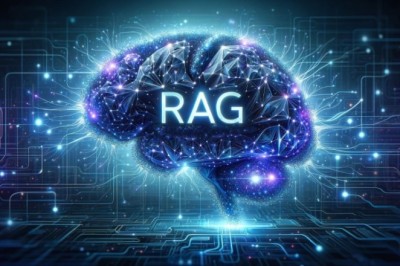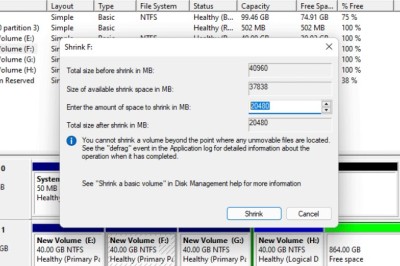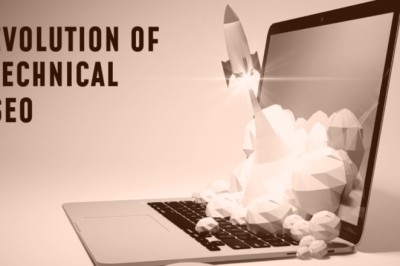views
It’s easy to think of the past as something that should stay behind us — a collection of memories we can’t change. But in truth, our past is a living part of who we are. The choices we make, the habits we form, and the beliefs we hold are often echoes of earlier experiences. When we take time to look back thoughtfully, not with regret but with curiosity, we can uncover valuable insights that help us live more intentionally today. Whether you’re reflecting on personal growth, relationships, or even financial patterns like debt consolidation, examining your past can reveal the storylines that shape your present — and show you how to rewrite them for a better future.
The Power of Reflection
Reflection isn’t about replaying old mistakes or reliving painful moments. It’s about understanding how those experiences shaped who you’ve become. By slowing down and examining your reactions, emotions, and choices, you gain context for the present.
For example, someone who grew up watching their parents struggle with money may develop habits of scarcity — always saving, rarely spending, and feeling anxious even when financially stable. Another person might do the opposite, spending freely because financial security once felt unattainable. Both patterns are valid responses to past experiences, but reflection allows you to see them clearly and ask: Do these patterns still serve me today?
That’s the beauty of looking back. It gives you a mirror, not to judge yourself, but to recognize where your current mindset came from — and whether it’s time to update it.
Recognizing Patterns and Triggers
Everyone has behavioral patterns, many of which operate on autopilot. These are the responses we developed long before we realized they were choices. When left unexamined, they can quietly steer our decisions. Reflection helps bring them into awareness.
Let’s say you notice that you avoid conflict in relationships or struggle with saying no to extra responsibilities. Looking back, you might realize that as a child, you equated peace with safety, or approval with love. This realization doesn’t blame your past; it explains your present. With that awareness, you can begin to make new choices — ones rooted in your current values rather than outdated fears.
The same goes for financial habits. If spending feels like an emotional release or saving feels like punishment, tracing that behavior to its origin can help you shift toward balance. Awareness breaks the cycle.
Reinterpreting Difficult Memories
One of the most powerful parts of reflection is the ability to reinterpret the past. This doesn’t mean rewriting history — it means reframing how we understand it. A setback that once felt like failure might, in hindsight, reveal itself as a turning point. A painful experience might have sparked resilience or empathy that serves you today.
Reinterpretation doesn’t erase hardship, but it allows healing. You begin to see your younger self not as flawed or misguided, but as someone doing their best with the knowledge and tools they had. That compassion for the past creates strength in the present.
According to the American Psychological Association, the process of reframing experiences is a key part of building emotional resilience. It helps individuals make meaning out of adversity and move forward with greater clarity and purpose.
Connecting the Past and Present
The past doesn’t just live in memories — it lives in habits, thought patterns, and emotional reactions. By identifying these connections, you can start to align your past experiences with your present goals.
For instance, if you once struggled with debt or financial instability, it’s natural to feel wary of taking financial risks now. However, by reflecting on what led to those challenges — perhaps overspending during stressful periods or lacking a financial plan — you can take proactive steps toward improvement. That might mean seeking education, creating a budget, or exploring structured solutions like Debt Consolidation. Reflection gives you the insight to make choices that prevent old mistakes from repeating and transform old fears into informed action.
Learning to Appreciate Growth
It’s easy to focus on how far we still have to go and forget how far we’ve already come. Looking back isn’t just about uncovering challenges; it’s about recognizing progress. Every lesson learned, boundary set, or habit changed represents growth — even if it took time to get there.
When you revisit old journals, conversations, or decisions, notice how your perspectives have evolved. You might find that what once felt like chaos actually shaped your discipline, or that heartbreak taught you compassion. Seeing these threads helps you appreciate your resilience.
Studies from the Harvard Business Review have shown that regular reflection increases learning and performance by helping individuals integrate experiences into their sense of self. Simply put, reflection makes growth visible.
Using the Past as a Guide, Not a Weight
One of the biggest mistakes people make when looking back is getting stuck there. The goal isn’t to live in the past but to use it as a compass for moving forward. The insights you gain should empower you to make clearer, more intentional choices.
If you’ve struggled with procrastination, fear of failure, or impulsive decisions, understanding where those tendencies originated can guide you toward healthier habits. The past provides data, not destiny. It teaches you what works, what doesn’t, and what needs reimagining.
Every decision made today builds on yesterday’s experiences. The difference is that now, you can make those decisions with awareness rather than habit.
Moving Forward With Awareness
Looking back to understand the present is an act of self-awareness and courage. It means acknowledging that while we can’t change what’s happened, we can change how we interpret and respond to it. The lessons of the past become tools for the present, helping us navigate challenges, relationships, and goals with greater wisdom.
When you view your history not as a burden but as a guide, every experience becomes valuable — even the painful ones. Reflection transforms regret into understanding and uncertainty into direction.
Your past may have shaped you, but it doesn’t define you. It’s simply a reference point — a place to learn from so you can move forward with clarity, confidence, and purpose. In the end, looking back isn’t about nostalgia; it’s about empowerment. It’s about seeing how every chapter, no matter how imperfect, has contributed to the person you are today — and to the life you’re still creating.
























Comments
0 comment